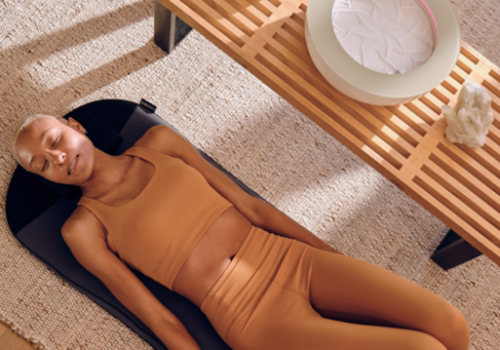What is Aromatherapy?
Understanding The Science Behind Aromatherapy
When it comes to natural remedies, aromatherapy has stood the test of time. In fact, holistic aromatherapy has been used for thousands of years, with individuals in ancient Egypt and China incorporating it into various areas of their cultures.
But what is aromatherapy exactly? Put simply, aromatherapy is the practice of using essential oils — concentrated plant extracts — to enhance both physical and mental well-being through scent.
If you’re wondering what does aromatherapy do exactly, or do essential oils work, this article is for you. Keep reading to learn everything you need to know about how essential oils work and the best ways of using aromatherapy.
What is Aromatherapy?
Aromatherapy leverages the scent of essential oils to produce specific effects, such as relaxation or concentration. These oils are what’s known in chemistry as volatile compounds, or phytochemicals. They’re extracted from various parts of plants to harness the plant’s scent and flavor.
For centuries, holistic aromatherapy practices have used essential oils to:
- Promote relaxation
- Relieve stress
- Enhance mood
But how exactly does this process work?
When essential oils are inhaled, the aroma molecules travel to the olfactory bulb in the nose, which sends direct signals to the brain’s limbic system — a biological necessity for processing emotions, memory, and learning.
It’s also believed that the aroma molecules can have mental health benefits by triggering the release of hormones, and scientists continue to study how aromatherapy can release ‘happy’ neurotransmitters like serotonin and dopamine.
How to Incorporate Aromatherapy into Your Lifestyle
There are a few different ways to utilize aromatherapy and make it an integral part of your daily routine. For instance, some people may add essential oils to their baths to create a more relaxing experience. Others may dilute their essential oils with a carrier oil and apply them directly to the skin.
An aromatherapy diffuser is a device that disperses essential oils into the air in a healthy and safe way. This allows you to easily incorporate aromatherapy into your daily life, like while you’re relaxing in your living room, entertaining in your dining room, or lying in bed before you go to sleep with a comforting and relaxing diffuser blend.
Typically, to use a diffuser for aromatherapy, you simply add water to the diffuser reservoir along with a few drops of essential oil. That being said, there are a few different kinds of diffusers, such as a waterless diffuser, available depending on your aromatherapy needs.
Types of Aromatherapy Diffusers
There are three main types of aromatherapy diffusers on the market:
- Ultrasonic Diffusers – These diffusers use high-frequency vibrations to break down essential oils into a fine mist. This mist is then dispersed into the air, where you can inhale it. Ultrasonic diffusers are typically quiet and easy to use. They’re also a good choice for people with sensitive skin, as they don’t use heat to diffuse the essential oils.
- Nebulizing Diffusers – These diffusers use a high-pressure air stream to break down essential oils into micro-particles. These micro-particles are then dispersed into the air. Nebulizing diffusers are more powerful than ultrasonic diffusers and can disperse essential oils over a larger area. However, they can also be more expensive and noisy.
- Heat Diffusers – These diffusers use heat to evaporate essential oils and disperse them into the air. Heat diffusers are typically less expensive than ultrasonic or nebulizing diffusers. However, they can alter the therapeutic properties of the essential oils and thus, may not be as effective.
No matter what type of diffuser you use, it’s important to only buy essential oils from legitimate, trusted sources. Additionally, individuals under the age of 15 should avoid aromatherapy treatment unless they have express permission from their doctor, as aromatherapy scents can impact younger populations much more intensely than their adult counterparts.
Choosing the Right Essential Oils for You
When it comes to aromatherapy, one of the many benefits is being able to customize your practice by mixing and matching different essential oils. As an example, a few of Homedics’ trademark, ethically-sourced blends incorporate:
- Bergamot – This uplifting and balancing oil is said to be helpful in raising one’s mood and decreasing stress levels.
- Patchouli – This oil may be beneficial for those with digestive issues.
- Sandalwood – Sandalwood is perfect for your next guided meditation, as it can help foster an environment of safety.
Experience the Benefits of Aromatherapy with Homedics
For thousands of years, individuals have incorporated aromatherapy into their wellness and self-care routines, and now, you can too. With proper knowledge and a trusted brand, you can unlock the full potential of these aromatic wonders—which is where Homedics’ SereneScents come into play.
SereneScents are 100% natural, USDA-certified essential oil blends that you can use to transform your space through the power of aromatherapy. Simply add a blend of your choice to one of our sleek, waterless diffusers, and you’ll be well on your way to an unmatched aromatic experience.
Explore our collection of luxe, location-inspired fragrances at Homedics today to get started.
Sources:
International Journal of Molecular Science. Therapeutic Effect and Mechanisms of Essential Oils in Mood Disorders: Interaction between the Nervous and Respiratory Systems. https://www.ncbi.nlm.nih.gov/pmc/articles/PMC8125361/
Current Drug Targets. Aromatherapy and the central nerve system (CNS): therapeutic mechanism and its associated genes. https://pubmed.ncbi.nlm.nih.gov/23531112/
Medical Journal of Australia. Essential oil exposures in Australia: analysis of cases reported to the NSW Poisons Information Centre. https://onlinelibrary.wiley.com/doi/full/10.5694/mja2.50403

